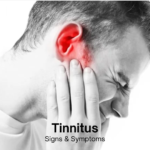Understanding Thyroid Nodules: Causes, Symptoms, Diagnosis, and Treatment
The thyroid gland, a small butterfly-shaped organ located at the base of the neck, plays a crucial role in regulating metabolism through the production of hormones. However, like any other part of the body, the thyroid can develop various conditions, one of which is thyroid nodules. These are lumps that form within the thyroid gland and can vary greatly in size and number. Although most thyroid nodules are benign (non-cancerous), their presence can cause concern and necessitate medical evaluation to rule out malignancy. This article provides an in-depth look at thyroid nodules, exploring their causes, symptoms, diagnosis, and treatment options.
What are Thyroid Nodules?
Thyroid nodules are abnormal growths of thyroid cells that form a lump within the thyroid gland. They can be solid or filled with fluid (cystic) and can develop in different parts of the gland. Thyroid nodules are common, especially as people age, and are often discovered incidentally during routine medical examinations or imaging studies for other conditions.
Causes of Thyroid Nodules
Several factors can contribute to the development of thyroid nodules, including:
- Iodine Deficiency: In regions where iodine intake is insufficient, the risk of developing thyroid nodules increases. Iodine is essential for thyroid hormone production, and a deficiency can lead to thyroid gland enlargement (goiter) and nodules.
- Thyroiditis: Inflammation of the thyroid gland, known as thyroiditis, can cause the development of nodules. Hashimoto’s thyroiditis, an autoimmune condition, is a common cause of hypothyroidism and thyroid nodules.
- Genetic Factors: A family history of thyroid nodules, goiter, or thyroid cancer can increase the likelihood of developing nodules.
- Radiation Exposure: Previous radiation therapy to the head, neck, or chest, especially during childhood, can increase the risk of thyroid nodules and cancer.
- Benign Thyroid Conditions: Conditions such as multinodular goiter or benign adenomas (non-cancerous tumors) can lead to the formation of nodules.
Symptoms of Thyroid Nodules
Many thyroid nodules do not cause symptoms and are discovered incidentally. However, when symptoms do occur, they may include:
- A Visible Lump: A noticeable lump in the neck may be the most apparent sign of a thyroid nodule.
- Difficulty Swallowing or Breathing: Large nodules or multiple nodules can compress the esophagus or trachea, causing difficulty in swallowing or breathing.
- Throat or Neck Pain: Some nodules can cause discomfort or pain in the throat or neck.
- Voice Changes: Compression of the laryngeal nerves by large nodules can lead to hoarseness or voice changes.
- Hyperthyroid or Hypothyroid Symptoms: If the nodule produces thyroid hormones, it can cause symptoms of hyperthyroidism (e.g., weight loss, rapid heartbeat, nervousness). Conversely, if it affects the gland’s overall function, it can lead to hypothyroidism (e.g., fatigue, weight gain, depression).
Diagnosis of Thyroid Nodules
The evaluation of thyroid nodules typically involves several steps to determine their nature and whether they are benign or malignant:
- Physical Examination: A healthcare provider will examine the neck to check for the presence of nodules and assess their size and consistency.
- Thyroid Function Tests: Blood tests to measure levels of thyroid hormones (T3 and T4) and thyroid-stimulating hormone (TSH) can help determine if the thyroid is functioning normally.
- Ultrasound: A thyroid ultrasound is a non-invasive imaging technique that uses sound waves to create a picture of the thyroid gland and nodules. It helps assess the size, number, and characteristics of the nodules.
- Fine Needle Aspiration Biopsy (FNA): If a nodule appears suspicious, an FNA biopsy may be performed. This involves using a thin needle to extract cells from the nodule for microscopic examination to check for cancer cells.
- Radioiodine Scan: In some cases, a radioiodine scan may be used to determine whether a nodule is “hot” (producing excess thyroid hormones) or “cold” (non-functional). Hot nodules are usually benign, while cold nodules require further evaluation.
Treatment Options for Thyroid Nodules
The treatment of thyroid nodules depends on several factors, including the size and type of nodule, symptoms, and whether it is benign or malignant. Common treatment options include:
- Observation: Benign nodules that do not cause symptoms may not require immediate treatment. Regular monitoring with physical exams and ultrasound is often recommended to check for changes in size or characteristics.
- Thyroid Hormone Suppression Therapy: In some cases, thyroid hormone medication may be prescribed to suppress the growth of nodules, particularly if they are caused by an underactive thyroid.
- Radioactive Iodine: For hyperfunctioning nodules (hot nodules) that cause hyperthyroidism, radioactive iodine treatment can be used to shrink the nodules and reduce hormone production.
- Surgery: Surgery may be recommended for nodules that are large, cause symptoms, or have suspicious or malignant characteristics. The extent of surgery can vary from removing the nodule (lobectomy) to removing the entire thyroid gland (thyroidectomy).
- Ethanol Injection: For cystic nodules, ethanol injection can be an effective treatment to shrink the nodule by causing it to harden and decrease in size.
- Minimally Invasive Procedures: Newer techniques, such as radiofrequency ablation (RFA) or laser ablation, are minimally invasive options for reducing the size of benign nodules without surgery.
Conclusion
Thyroid nodules are common, and while most are benign, they require careful evaluation to rule out malignancy and determine the appropriate management. Understanding the causes, symptoms, diagnostic methods, and treatment options for thyroid nodules can help individuals make informed decisions about their health. If you suspect you have a thyroid nodule or experience related symptoms, it is important to seek medical attention for proper assessment and care. With advancements in medical technology and treatment options, managing thyroid nodules has become more effective, ensuring better outcomes and improved quality of life for those affected.





